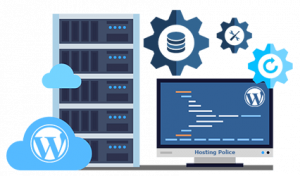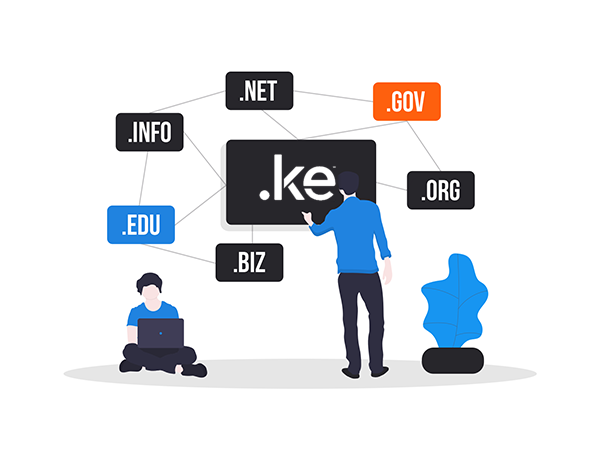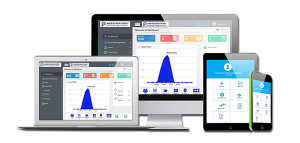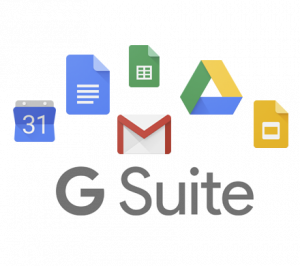Shared hosting is the most economical means to get your website online. But whilst it is cheaper than VPS, dedicated hosting, cloud hosting, which does not mean that you should accept purchase basement resources and attributes. Alas, many people don’t fully comprehend what to look for when picking a shared hosting package and may end up with quite inadequate service. To help, we have put this straightforward guide that will give you a hand.
- Hosting Operating System: Linux or Windows
A lot of individuals often think that since they use Windows as an operating system for their home computers, that this is what they should use on due to their websites. In reality, the great majority of sites are run on Linux servers. If you are likely to use software like WordPress, Magenta, Joomla, etc to construct your website, Linux is the option you should really go for.
Check the software program you intend to use before choosing Linux or Windows. You won’t really have an option; in the majority of situations, the computer software will dictate the operating system you need.
- How many sites do you mean to own?
While most people just want to run one website, some folks, such as online marketers, wish to run several. If that is true, be mindful that a shared hosting packages set an upper limit to the number of websites you’ll be able to host. This can be done through limiting the number of databases it is possible to set up (you’ll need another database for each site). In Webscreations Design Hosting as an instance, our Basic Plan enables you to create 10 sites, however, for a couple pounds more a month, our Advanced Plan enables you to have unlimited sites.
- How much storage space do you really require?
You’ll also have to have some notion of just how much space you’ll want to save all your website’s applications, documents and images. Most sites don’t really need that much distance. In comparison to applications run in your computer, the programs required for running sites are rather small and the dimensions of the internet pages are usually quite small also. Frequently the largest files you’ll need are videos and images.
If you want to run a number of websites or eCommerce sites with thousands of pictures, then you may need more storage space.
For smaller websites, 2GB of storage is likely to be more than ample to your needs. However, packages offering around 20GB are available, and these can easily cater to many sites and vast amounts of information.
Do be aware of companies that place limitations on the amount of documents you can store. This is sometimes a hidden means of limiting the distance you’re using.
- Always select unmetered bandwidth
Bandwidth is the term used to describe the number of data your website receives and sends. If you’re given a monthly bandwidth quota, keep in mind that each time a person visits a page of your website a number of your bandwidth is going to be consumed. Additionally, this is true if someone clicks on an image to view it at full size, then streams a video saved on your website, fills in some form or carries out any other functionality.
Although each of those actions will only consume a small amount of bandwidth (except video streaming), if you’ve got a great deal of traffic, then these tiny amounts soon accumulate. This means, if you get to your bandwidth limit in any specific billing period, your site may go offline until the following billing period starts.
To avoid this, choose a hosting package that provides unmetered bandwidth. This usually means you can have as many people as you like without needing to worry. In Webscreations Hosting, our shared hosting packages offer unmetered bandwidth.
- Go for great functionality
Whilst there are lots of aspects which may determine the speed of your website (the range of plugins you use, the dimensions of each page, etc.) among the significant factors is the kind of internet server your site is hosted on. Make sure your host utilizes the most recent hardware which will give you all the computing tools your website will have to conduct its own processes. This will enable your site load fast on your visitors’ computers and cellular devices.
A one second delay in loading can induce customers to depart and reduce sales by 7%. So, it’s vital that you look closely at what technology your host uses. In Webscreations Hosting, our shared hosting is conducted on the latest, high performance Dell PowerEdge hardware — and we update regularly.
- Look for a user friendly admin panel
Administering your website should be an easy and intuitive procedure and this can be best done using a control panel that has a user-friendly interface. While this happens, things such as installing a new website, upgrading software, including extensions and caring for your account, are simple and easy to accomplish.
The most user-friendly panel for most shared hosting is cPanel that’s used by many web hosts. But, it’s also wise to ensure your web host is totally trained in using cPanel so it may deal with any problems which may come up. At Webscreations, not only are we a certified cPanel provider, we’re also the world’s top business when it has to do with cPanel expertise.
- Security attributes
The very last thing you want is the website to get hacked or infected. When looking for a shared hosting provider, you need to choose one which offers you a selection of safety features that will maintain your site protected. You will need a host that may provide intrusion detection, firewalls, SSL certificates (for assessing your clients’ payment information), email scanning, spam filtering and, even if the worst happens, remote backups so your site can be instantly restored.
- A host which stays online
As soon as your website is ready to go, you do not want a web host which keeps letting it go offline. It gives your website a lousy reputation, loses visitors and can even cost you in lost earnings. For that reason, look for a web host that could ensure your site will always be accessible. For shared hosting, then you need to make sure a host offers uptime of 99.9% or more.
- Additional features
Besides the attributes mentioned above, a great web host will provide you with these services in your shared hosting account: unlimited email accounts, together with your websites domain name (e.g. me@mywebsite.com); 24/7 technical support via telephone, email and live chat, and so you get expert help whenever you need it in a means that’s convenient for you; and a ‘no minimal’ contract length, so that you aren’t tied in should you choose to leave.










